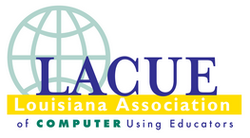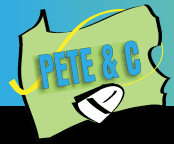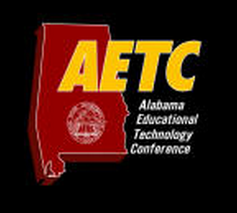Conference Where I Have Presented
|
Louisiana Association of Computer Using Educators (2010) Pennsylvania Educational Technology Expo & Conferences (2011) Kentucky Society for Technology in Education (2011) International Technology & Persons with Disabilities Conference (2011) National School Board Association Conference (2011) Alabama Educational Technology Conference (2011) International Society for Technology Education (2011) |
Conference Presentations
On Track for Reading Success
The importance of reading extends far beyond the classroom; not only is reading the bedrock upon which other academic disciplines are built, it is also the an essential skill for the workplace and everyday life. Despite the fact that reading is an essential skill for elementary students, many still struggle to develop the basic reading skills that are so vital to continued success.
The successful teaching of reading is therefore a subject of profound importance, one which requires creative solutions to address the challenges associated with teaching students to read. Many of the challenges confronting teachers who work with struggling readers can be effectively addressed through well-planned interventions that target specific deficits in reading ability.
In this session, attendees will learn how to use reading software designed to target and effectively address deficits in specific skill areas associated with reading skills and learn how to use reading software to achieve district-wide improvements in reading.
Hands on SPED
Teachers recognize that the learning needs of each special education student are unique. Teachers must therefore be both responsive and inventive in their instruction, developing strategies and solutions that account for and address the diversity of student learning styles by providing a variety of options for learning, as well as multiple options for demonstrating knowledge acquisition.
Technology can be a powerful tool for addressing differences in student learning both in special education and mainstream education classroom. In this seminar, attendees will examine a variety of programs that address a range of subjects and skill areas. Rather than offering one technology solution that addresses the needs of all students, this seminar encourages educators to look at develop need-based technology solutions by critically examining a range of technology resources.
Join us for a hands-on exploration of software for special education, early learning, and inclusive teaching. In this seminar we will investigate a switch-adapted reading series, as well a reading program designed specifically for students on the autism spectrum and visual learners.
ASD Software for Student Success
Students who have been diagnosed with Autism, Asperger's Syndrome, or Pervasive Developmental Disorders (PDD) often struggle with skills that seem to come naturally to other children. Some students on the ASD spectrum struggle with speech, others with social interactions. Some students are averse to eye contact while others are sensitive to loud noises. Because students on the ASD spectrum do not interpret and integrate sensory information in a natural and organic way, these skills must be explicitly taught. This seminar focuses on a variety of technology solutions designed to compliment the many behavioral and academic interventions which are available for students on the ASD spectrum.
Monkeys, Ducks and Frogs
It is widely accepted that technology is central part of life in the 21st century. This is especially true for our youngest students who are accessing technology at a very early age. Given these circumstances, the importance of teaching students information literacy and ICT skills in the early years of elementary school cannot be stressed enough. Without this instruction, children will learn about technology from their peers or from the technology itself. The following seminar addresses the growing need for early technology and ICT skills instruction by presenting educators with programs that incorporate ICT skills and academic skills into fun, safe and engaging learning programs.
Using Evidence-Based Assessment to Engage Students and Foster Learning
Join us to explore MAPS, a flexible solution for online assessment that offers students an environment to “show what they know” and demonstrate their learning processes. MAPS combines online and offline collaboration and evidence capture tools. See how easy it can be to create an environment that builds peer collaboration skills, where educators assess electronic work without printing or changing the work itself.
21st Century Science Solutions
Explore different simulation programs that allow elementary and middle school students to safely experiment at the computer. Make a food web or discover an interpretation of our world millions of years in the future. Categorize a library of photographs into a searchable database. Get a glimpse of how your digital camera can become a near microscope.
ReacTickles: Engagement and Interaction Through Sensory Play
Students who have been diagnosed with Autism, Aspergers Syndrome, or Pervasive Developmental Disorders (PDD) often struggle with sensory input. While some students are particularly sensitive to sound, others are sensitive to visual or tactile stimuli. These students share an inability to interpret and integrate sensory information in an natural and organic way. Many learners on the Autism Spectrum Disorder (ASD) continuum respond to environmental sensory input with feelings of anxiety, confusion and fear. As a result, these students often engage in self-stimulatory behavior; unlike the sensory input they receive from the external environment, sensory input from repetitive self-stimulatory behavior is calming, affording the students on the Autism Spectrum Disorder (ASD) continuum a measure of control over a frightening and confusing world. This seminar will focus on interactive sensory software that complements instruction and behavioral training for students on the Autism Spectrum Disorder (ASD) continuum.
Upcoming Conference Presentations
CLOSING THE GAP 2011
Active Music Making in the Special Education Classroom
Music is an excellent tool for engaging students in authentic hands-on learning; however, the benefits of playing music extend far beyond engagement. When we learn how to play music we learn many other things as well. In addition to musical concepts such as melody, tone and pitch we also learn a host of other skills from playing music, including timing, sequential memory, coordination and pattern recognition. In addition, musical learning can facilitate the development of important social skills such as social timing, rhythmic interaction, non-verbal cues, spatial awareness and cooperation. Despite the obvious benefits of musical learning for special needs students, physical limitations or developmental delays can be a significant barrier to musical learning for some students with disabilities. Historically this has been a difficult problem to overcome as musical instruments are not designed for ease of use.
In 2006 researchers at the University of Edinburgh set out to overcome this obstacle to musical learning by creating an instrument designed specifically for people with profound physical and developmental challenges. The Skoog is a musical instrument designed to empower students with disabilities who are unable to play traditional instruments. In this seminar attendees will learn how to use this new type of musical instrument to engage and motivate special needs students in a whole new way.
Media Tools for Differentiated Learning
Effective teachers are responsive to the diverse learning needs and styles of the students they work with. While some students excel at linguistic models of learning, others may be more adept at logical-mathematical learning. Another student may be a visual-spatial learner while others may be kinesthetic learners. Teachers address the unique needs of each student by differentiating instruction. In this way teachers account for and address the diverse learning styles of students by providing students with a variety of options for learning as well as multiple options for demonstrating knowledge acquisition.
Differentiated instruction, though beneficial to students, poses certain challenges for teachers. Differentiation requires a shift in instructional strategies, increased planning and cooperation, as well as the incorporation of new tools for assessment and evaluation. Many of the challenges associated with differentiated instruction can be effectively addressed by using new media tools that engage students in hands on, self-directed experiential learning. One such tool is the suite of media programs developed by Creaza Education.
In this seminar, attendees will learn how to differentiate instruction using the Creaza media toolkit. Each attendee will receive a two-month subscription to online media tools and digital assessment applications.
Modeling Works: Claymation for Students with Autism
Research indicates that students who have been diagnosed with Autism, Asperger's Syndrome, or Pervasive Developmental Disorders (PDD) often struggle with what is known as the triad of impairments: social interaction, social communication and imagination (National Autistic Society). Where other children learn social and communicative skills in an organic way, by mirroring and mimicking adult behavior through symbolic/conceptual play, students on the ASD spectrum tend to shy away from symbolic/conceptual play, choosing instead to engage in object based tactile play. The importance of symbolic play is underscored by the fact that symbolic/conceptual play contributes significantly to the development of early language and cognition. According to Alan Dix, play is the source for human imagination, and therefore of language and reasoning (2003). For this reason, symbolic/conceptual play, which occurs naturally in other students, must be explicitly taught to students on the ASD spectrum. In this seminar, attendees will learn how to help students on the ASD spectrum who struggle with symbolic/conceptual play to improve social and communication skills by creating social stories using a stop motion animation program called Stop Motion Pro.
REFERENCES
Alan Dix. 2003. Being playful: learning from children. In Proceedings of the 2003 conference on Interaction design and children (IDC '03), Stuart MacFarlane, Tony Nicol, Janet Read, and Linda Snape (Eds.). ACM, New York, NY, USA, 3-9. DOI=10.1145/953536.953538 http://doi.acm.org/10.1145/953536.953538







